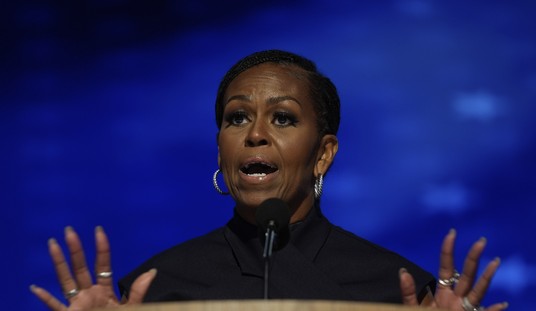As the administration pushes a value-added tax, while in typical Barackonian fashion claiming they’re not pushing a VAT, I thought it might be prudent to examine exactly what a VAT is.
The VAT is essentially a sales tax, but of a very specific sort.
What happens is every time value is added to a product or service, there is a tax added.
In the case of bread, for example, there is a tax when the wheat is harvested, another when the wheat is sold, another when the wheat is ground into flour, another when the flour is baked, another when the bread is sold to the retailer, and finally one when the bread sold to you.
And this happens on every purchase, whether a good or service.
This value-added tax has been used in Europe for some time and is rather unpopular there. It also has the effect of depressing consumption, as a large tax tends to keep people from buying things.
Now, if this VAT — or a national sales tax, another idea of the administration to fund its spending binge — were to replace the current system of income taxes then amen brother, preach on. However, this is being touted as a way to raise additional income, not as a replacement for the current system which everyone but the Internal Revenue Service hates.
It is usually implemented in a stair-step fashion, and the details vary from country to country. For instance, in the Netherlands non-essential goods and services are taxed at 19 percent while essentials like food are taxed at 6 percent.
Keep in mind that the top marginal tax rate in the Netherlands is just over 50 percent and there is talk of raising it to 60 percent. Sound familiar?
Also keep in mind that the VAT is a net tax, so local and state sales taxes are figured on the net price after the VAT is added.
For example, a gallon of milk here in my home town in Kansas runs about $3. Let’s figure, for ease of calculation’s sake, a 10 percent VAT. So, $3 x 1.10 gives you $3.30. Then you figure sales tax is about 10 percent as well, so $3.30 x 1.10 again is $3.63. Now the total tax is actually closer to 21 percent than 20; it adds up fast.
Sixty-three cents doesn’t sound like much, but let’s carry this further. In my house we go through roughly two gallons of milk a week, so that’s 104 gallons of milk a year. So 104 x .63 is an extra $65.62 a year I spend on milk. Still not that much over a year. However, you add this to every purchase. If your food bill is, say, $200 every two weeks (not uncommon if you have kids), then applying our calculations takes it up to $220 with the VAT and to $242 after sales taxes. Now the food bill that was $5,200 a year is $6,295 a year. So essentially, your pay just went down just over $1,000 a year. And this is on everything you buy and any service you contract for.
That $500 big screen you wanted now costs $605. That $20,000 car? $24,200.
As you can see, it adds up fast.
President Barack Obama has said he will not raise taxes on anyone making less that $250,000 a year. However the biggest criticism of both the fair tax and a VAT is that they are regressive taxes, falling hardest on those least able to afford them. That is, those in the middle and lower income brackets pay more as a percentage of income to sales taxes such as the proposed FairTax and VAT taxes. A flat tax has a similar problem: while it’s not strictly regressive, the American populace has expected taxes to be progressive. Since a flat tax simply taxes people a specific percentage of income across the board, people at lower income levels might end up paying more taxes than today.
In any case, with the number of people actually paying tax having fallen to 51 percent and the possibility that within a few years that could flip the other direction, it is clear some sort of reform in the tax code is needed.
What form that should take is unclear. As PJM’s Charlie Martin pointed out here, it really doesn’t matter what form taxation takes, or even how much you tax, so long as spending doesn’t grow faster than gross domestic product. So long as that doesn’t happen then eventually you pay off your deficits, break even, and begin to build a surplus.
Which brings us to the crux of the matter. Yes, reform in the tax system is needed, but before that can do any good at all, we must rein in spending.
We all know there is waste in government, duplicated programs, and obsolete programs. And of course bureaucrats and politicians spawn new programs like rabbits in springtime. They need them to justify their jobs. What has to happen before tax reform is government reform. We need politicians with the strength and voters with the will to insist spending be cut.
Otherwise all reform will do is give the politicians more money to waste.









Join the conversation as a VIP Member